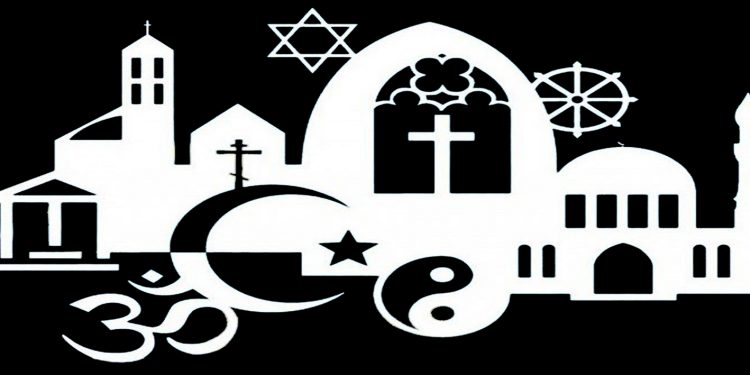Mihir Bose
I am one of Midnight’s Children born just a few months before India won her freedom. I grew up in Nehru’s India, he died the same day in May 1964 as my SSC results were published. Throughout that period, we worried about India breaking up. Foreign writers came visiting and went back to write books saying India could not survive. Even prominent Indians shared such views. In 1957, Rajagopalachari, a close confidant of Gandhi and the first Indian Governor-General of the country predicted that “the centrifugal forces will ultimately prevail”, bringing anarchy or fascism.
Today we know how absurd such fears were. Yet as I write I am consumed by fears about a very fundamental change to India which could have far reaching effects. India’s secularism, which for all the twists and turns of history, has survived and produced a country like no other, is now in grave danger. What is more, those who seek to protect it are being treated with the sort of brutality that the British colonial government used against Indians fighting for their freedom.
Amartya Sen has identified two principal kinds of secularism. In one, the state can be neutral between different religions, in the other it prohibits any religious association in state activities. France is an example of that prohibition. India, as Sen says, is an example of the first interpretation of secularism. I grew up staring Indian diversity in the face never realising that diversity existed, let alone glorying in it. And it started in my mother’s ‘puja ghar’, prayer room. This was in a corner of one our bedrooms. There on a raised platform my mother had an idol of Lakshmi, the goddess of wealth, surrounded by many other Indian gods and goddesses. Every morning she offered prayers to Lakshmi. The special day was Thursday, a day I much looked forward to.
That day my mother would not even drink water till she had done her puja. She would always wear a freshly laundered sari to perform the puja and the part I liked best was when she emerged after puja with a plate of sweets. These were the sweets that she had placed in front of Lakshmi during the puja ceremony. Now they were considered blessed by the goddess, prasad, and it was a very important part of our religious duty to consume this prasad.
But on Thursday evening we paid homage to a Muslim holy man. The holy man was Ganni Baba to whom my mother and father had been introduced by a mutual friend. Every week they would drive to his house, surrounded by homes of Hindu Gujarati businessmen, sit on a floor in the house and join in the prayers. They would bring back a bottle of water he had blessed. If we were ill or in any sort of trouble my mother would make us sip a little bit of the water and ask us to pray for Ganni Baba’s blessings. Then when he died my mother hung a portrait of Ganni Baba on the wall next to the idol of goddess Lakshmi. Every Thursday evening we would gather in front of his portrait, bow our heads and my mother would say, “Ask Ganni Baba to bless you and bring you prosperity.”
My mother had made this Muslim holy man something of a minor Hindu deity. Thus it was that growing up in Bombay my religious practice was framed by eating sweets blessed by Lakshmi on a Thursday morning and on a Thursday evening sipping water blessed by a devout Muslim.
However, the India that is emerging now under Narendra Modi’s rule has taken a very different attitude to secularism. It is clear from the persecution of those who do not follow the edict of banning of the slaughter of cows. It is demonstrated by the recent Act which allows illegal migrants from Afghanistan, Pakistan and Bangladesh provided they are Hindus, Christians, Buddhists, Parsis, Jews and Jains citizenship but not to Muslims from those countries. Modi’s government is turning its back on the tolerant, secular, society India’s founding fathers wanted.
The result is that in Mumbai, the city I grew up in, there is now a form of religious apartheid when it comes to housing. Munir Visram, a lawyer, describes how a Muslim client of his wanted to buy a flat in a suburb of Mumbai but when he gave his name the broker said, “You are a Muslim. Sorry this building is not for Muslims. Hindus only.” Parts of India’s commercial capital and its most vibrant city has become so segregated that, says Visram, “owners say this building is for vegetarians only, so there no Muslim, Christians, Jews, Paris or even meat-eating Hindus.”
Modi’s followers will argue that they are correcting the militant secularism that Nehru preached. In the Nehruvian India of my youth, religious discussion was considered taboo and would have been seen as a betrayal of Chacha Nehru. He encouraged the idea that any talk of religion must mean the person talking was sectarian, or in that catch all Indian phrase, a communalist. In Nehru’s India there could be no greater sin than to be branded a communalist. It is like being called a racist in the west nowadays.
Nehru, while well intentioned, fashioned a secularism which has provided the Hindutva movement to claim that Hindus are in peril. Ridiculous as this argument is, it has clearly persuaded many Hindus and the way Modi’s government is driving this agenda means the India that is emerging is not the caring, tolerant society I and many of my midnight’s generation grew up cherishing. I no longer fear about India breaking up but the India that is emerging is not what our founding fathers would have wanted and for whose freedom so many Indians gave everything up, including their lives.
—IANS
The London-based writer is a former sport editor of BBC and consulting editor of Asian Lite.






































